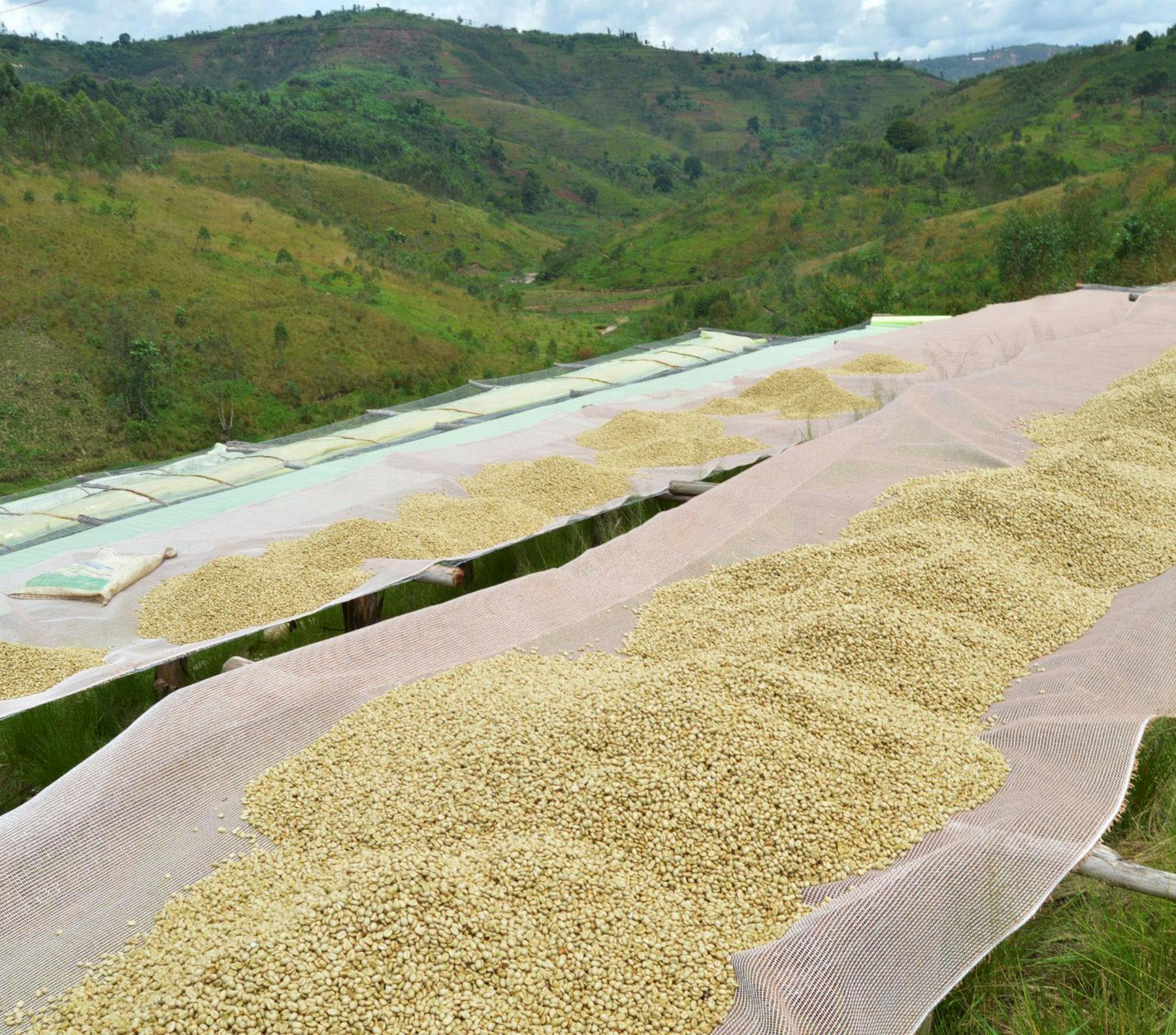Story
Since the very beginning, Burundi has been a place that we’ve approached with tremendous curiosity and hope. Most of the years that we’ve operated, we’ve featured at least one selection from this small, landlocked country. Our ever-evolving understanding of the place and its people deepened significantly when we visited in 2019, and to this day Burundi remains among the most economically challenged landscapes on the planet. Of the 191 countries assessed by the International Monetary Fund, Burundi has the lowest nominal GDP per capita, and myriad other empirical benchmarks—from Gross National Income to the Multidimensional Poverty Index to the Human Development Index—reinforce that this is a country with so much to gain from steady support and earnest empowerment.
Fast forward to 2025, and we are thrilled to have made what feels like a long overdue connection with JNP Coffee — an exporting/importing operation founded by Burundian woman Jeanine Niyonzima-Aroian. Jeanine, who doesn’t come from a coffee-growing background herself but has been surrounded by its ramifications all her life, attended university in the United States and went on to found a non-profit providing financial literacy training, among other services. When a cousin asked for her help in brokering better pathways for his own coffee production, she built upon her impact background and founded JNP, in 2012. Today, JNP’s export/import model reaches nearly 20,000 farmers across the country, including Burundi’s first women-owned washing station: Turihamwe.
Turihamwe was founded in 2019 by 7 women who attended a financial literacy training program that Jeanine had facilitated. Not only was it the first women-owned washing station in the country’s history, but to this day it remains the only one. Jeanine and JNP have always heavily prioritized womens’ equity and education in as many aspects of their operation as possible, and beyond this, have been key drivers for holistic transparency and impact throughout the Burundian system. Like many countries in East Africa, coffee is heavily and quite opaquely managed by the government, which regulates cherry prices and needs to stamp its legal approval on every lot that leaves the country. In addition to pushing for greater price transparency directly to farmers, Jeanine also introduced the Dushime second payment system, which has returned over $500,000 in premiums tied to quality scores since its introduction in 2012. These funds are most frequently reinvested in farmers’ communities, including secondary school fees, books and school supplies, fertilizers, and jobs for additional assistance in the field.
Turihamwe itself collects cherries from approximately 2,000 smallholder farmers, most of whom have 25 - 50 trees they farm in a “garden” style, as Jeanine puts it. Elevations are in the range of 1700 - 1800 meters above sea level, and the varieties are principally Bourbon, Jackson, Kent, and Mibirizi. Processing is meticulous — after floating cherries for ripeness, they are pulped and wet fermented overnight, then washed again the next day to rid any excess mucilage, then moved to clean tanks for their third and final washing before being dried and sorted on raised beds.
This entire process is organized well enough that Turihamwe is able to produce distinct “day lots” — incredible snapshots of distinct moments throughout the harvest. While not every day lot is specific to literally and precisely one day of the harvest, it does mean that the picking window is extremely narrow—as little as one day—offering heightened traceability and often a more pronounced, refined flavour profile. Altogether, this process yields coffees that exhibit the profile that Burundi is known for: juicy citrus, delicate and fragrant florals, and invigorating spice.
We are truly thrilled to represent Turihamwe, a supply chain that is both driven by women and explicitly oriented toward supporting them on a wider scale. In the regional language of Kirundi, Turihamwe means “together,” and we couldn’t think of a more apt title for this coffee.
In the cup, we taste white chocolate, grapefruit, and peony.
Names of the 7 women who founded Turihamwe:
Amahoro
Gahimbare J
Shimirimana Konsorata
Niyonzima J
Viyoreta
Anike
Pauline Nawe









